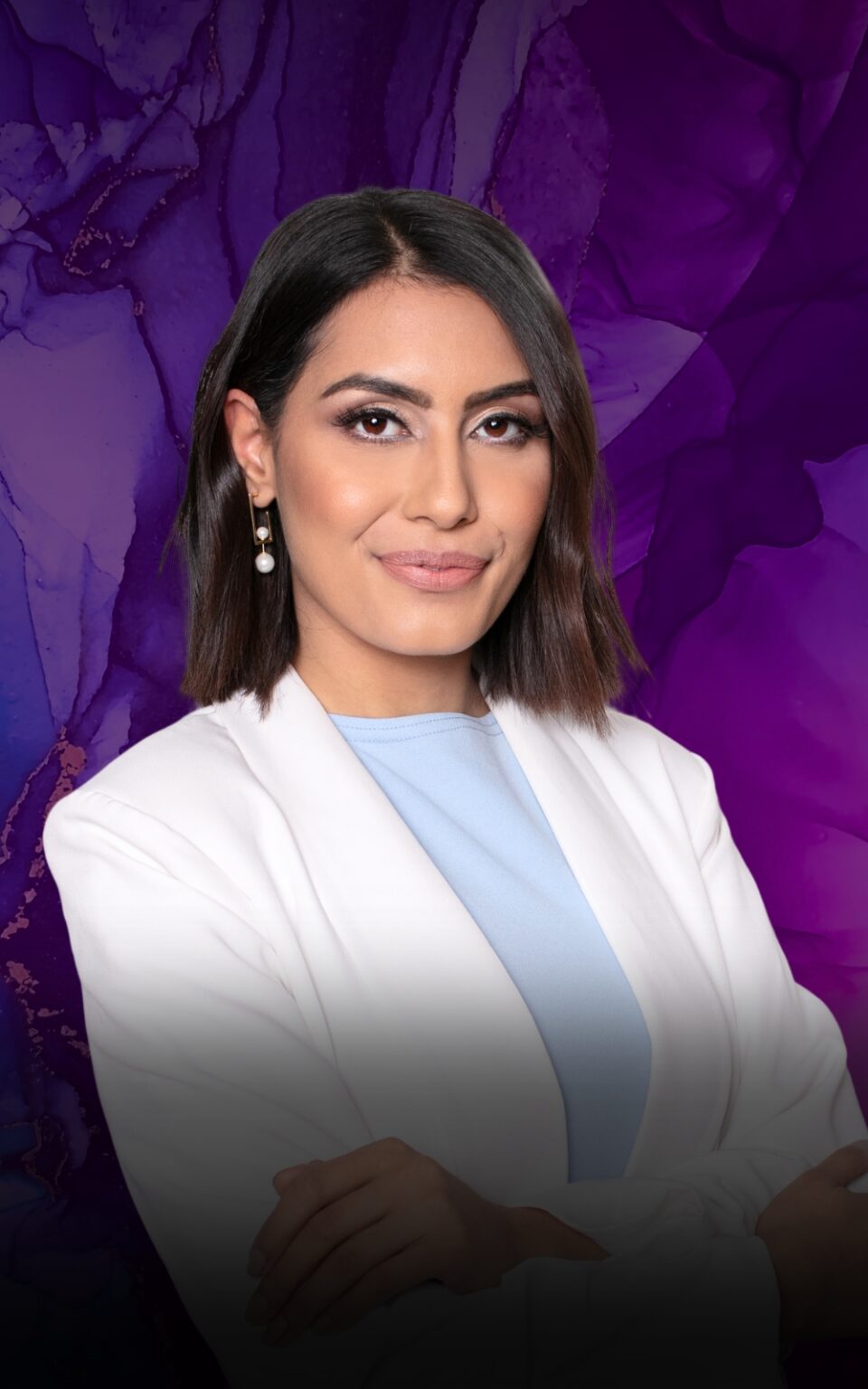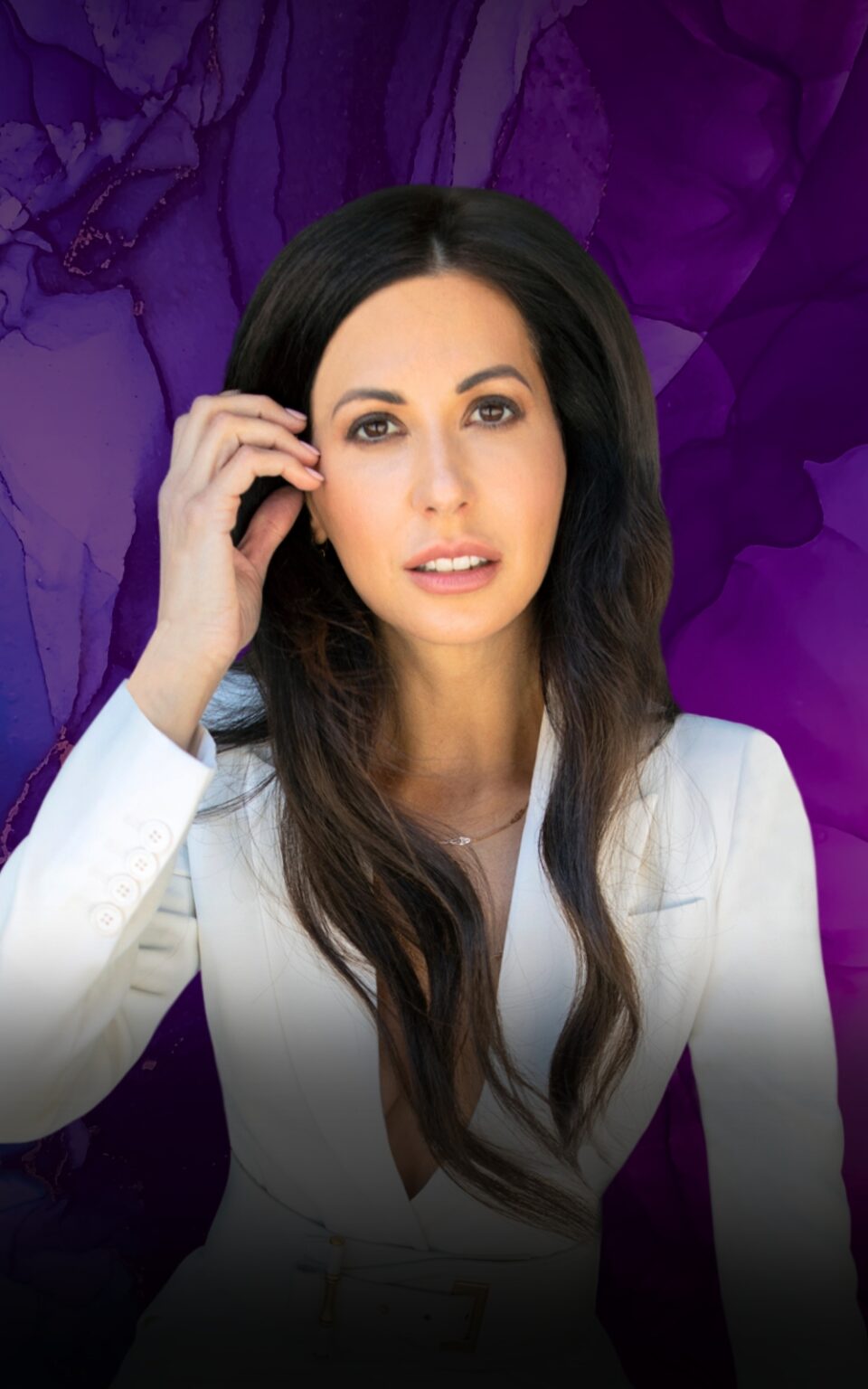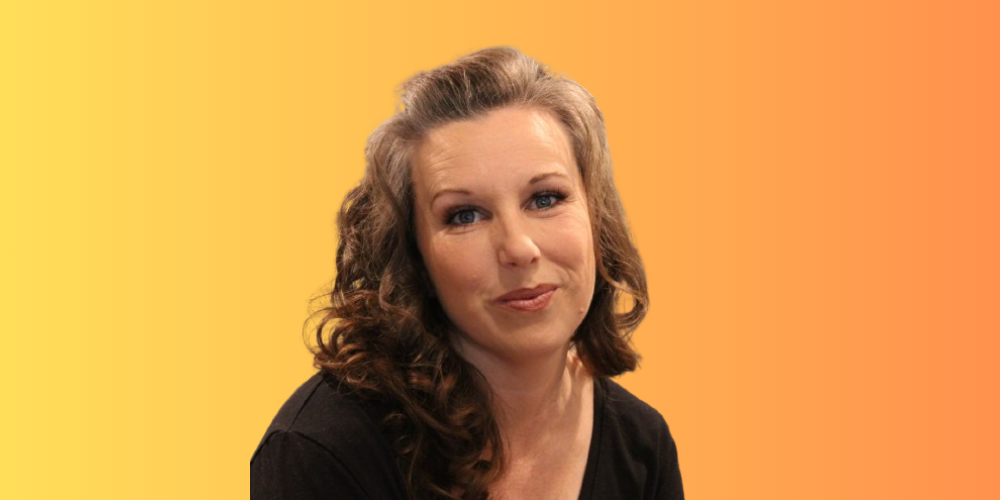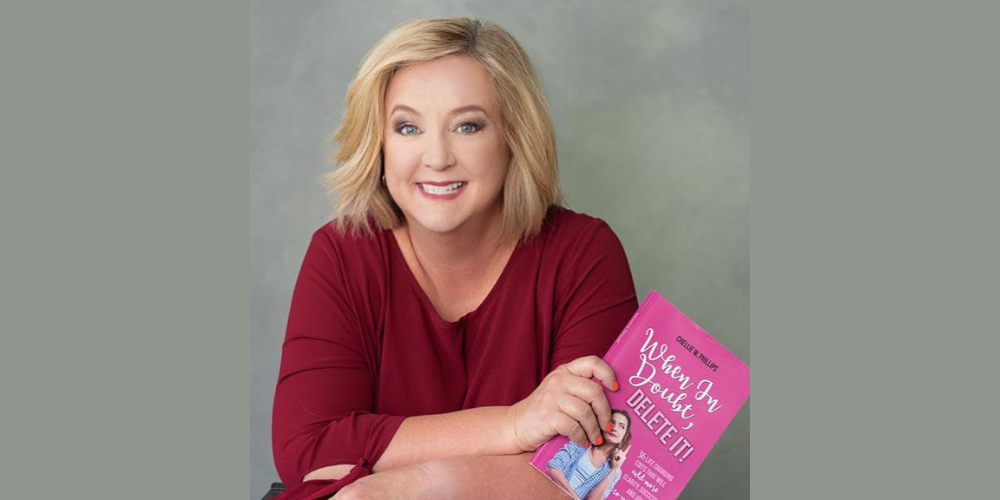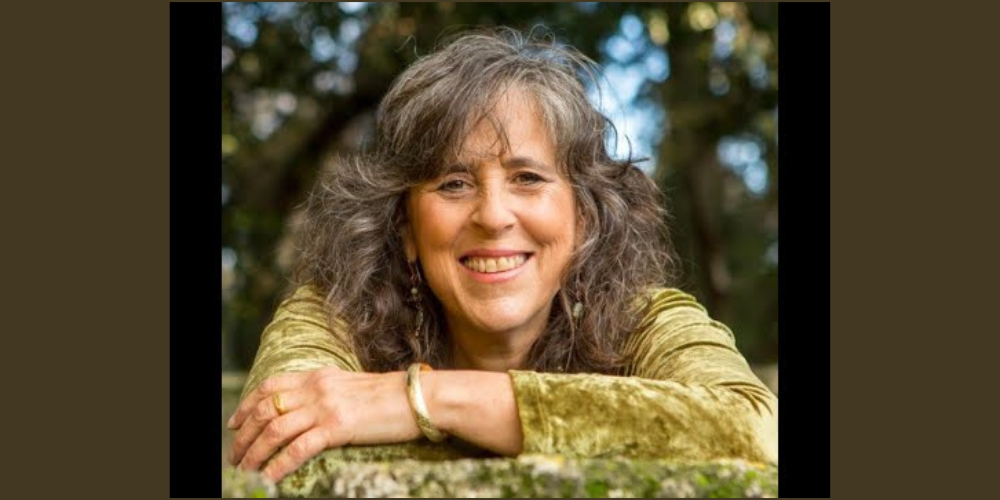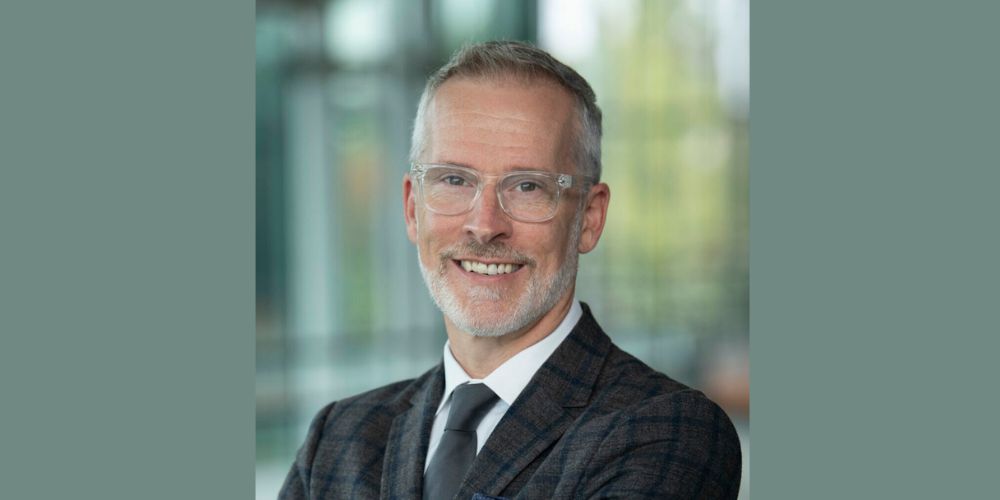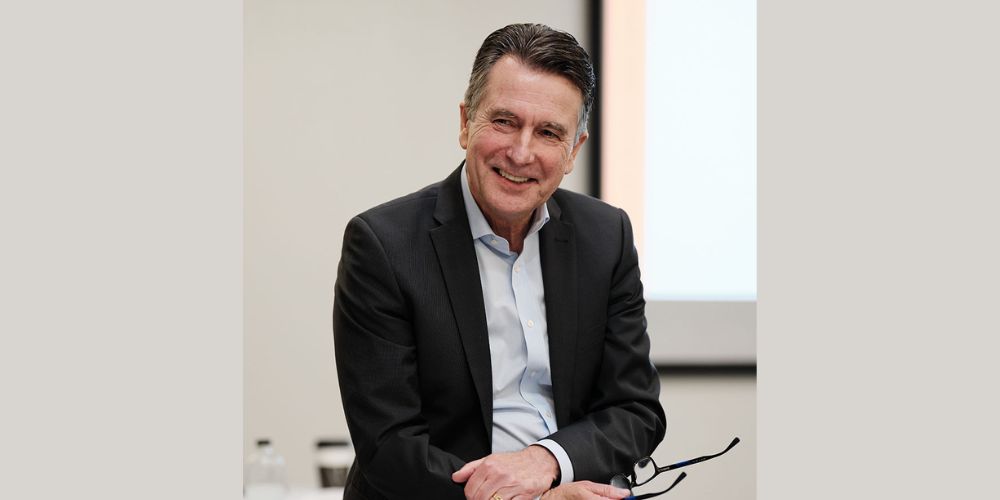Raj Girn: My guest today is Mary Griffin, a Kolbe Certified Consultant and the co-author of ‘Individual Influence: Find the I in Team,’ a collaboration with her father, Dr. Brian Smith.
Here is our conversation:
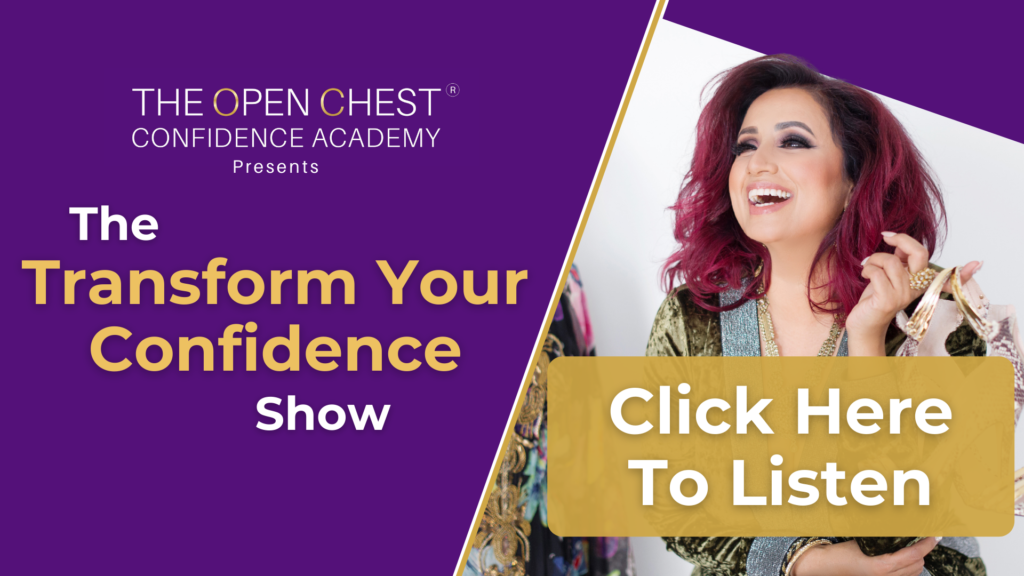
Raj Girn: Mary, welcome to the show and thank you for agreeing to be on.
Mary Griffin: Yes, thank you so much for having me. I’m really excited for this opportunity and to be here and meet you and join you. It’s really exciting.
Oh, my gosh. I feel exactly the same way. So let’s just jump right in, shall we, Mary? I’m dying to pick your brain. I know there is lots that everyone can garner from, your insights and your experience and everything. So let’s just start with learning a little bit about your professional background so we can set the scene for our discussion on the book. I want to ask you this, Mary. I’m just really curious, what is a Kolbe certified consultant? Let’s just start right there.
Let’s start there. That’s kind of where I was going to start anyways, because I was like, that’s probably something people are going to know about. So we believe at our firm that something that’s really helpful for understanding an individual human is seeing how they see themselves.
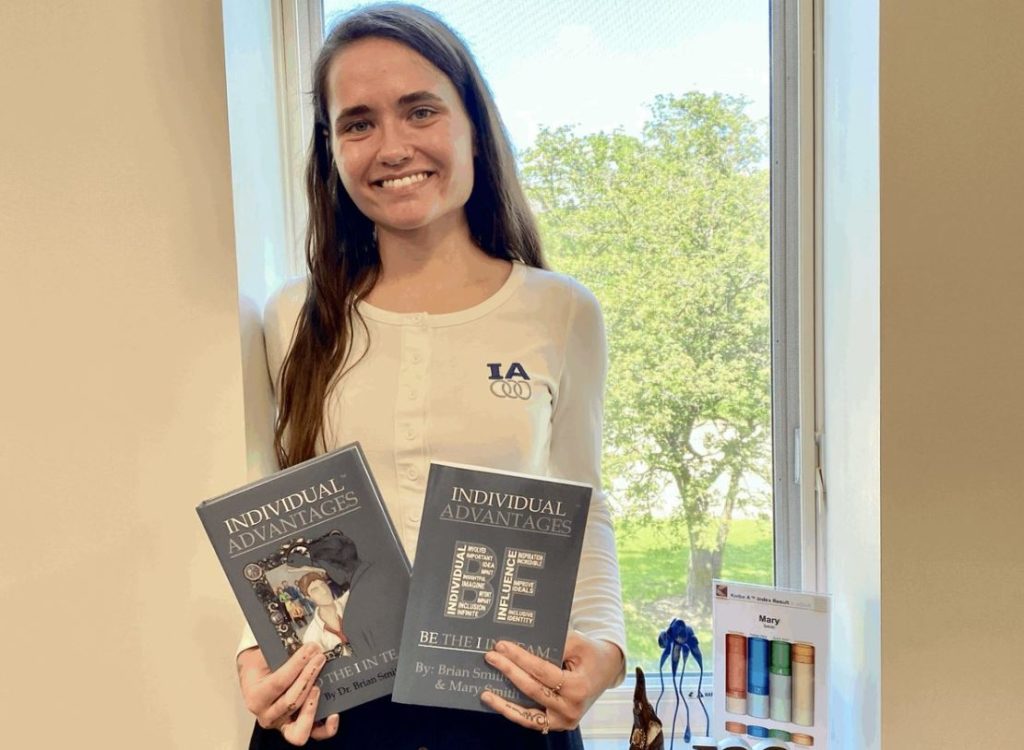
Credit: FB@IABusinessAdvisors
So we do that through administering assessments and there are different types of assessments. So the one we’re most familiar with is an affective assessment. So things like Myers-Briggs. These types of assessments, they’re measuring your emotional state or how you view yourself emotionally. But Kolbe is actually a new. It’s not that new. It’s from the ’90s. It’s new to me.
But that’s relatively new compared to a lot of these other tests, right?
Yes definitely. And it actually measures cognitive mind. So there are three parts of the mind. There is the affective, which is the emotional; the cognitive, which is IQ, things that we’re more familiar with. And then there’s the connective. It’s how we naturally do our work. It’s the only assessment of its kind, and it has what’s known as test-retest reliability, which means that if you were to take the Kolbe assessment today and then take it a year, five years, 10 years from now, the likelihood that it’s going to change is less than 10 per cent.
“There are three parts of the mind. There is the affective, which is the emotional; the cognitive, which is IQ, things that we’re more familiar with. And then there’s the connective. It’s how we naturally do our work.” ~Mary Griffin
Whereas if you take an affective assessment because it’s based on emotion and your emotion can change with your environment, those assessments are really only reliable for about 6 to 12 months after you take them, although they can remain the same for some people who stay in the same environment or are really, really in tune with themselves and very grounded and who they are. But Kolbe is an assessment that measures how someone is going to naturally perform their work.
If they are given the tools and the freedom to strive in their most natural way. How are they going to approach fact finding? How are they going to approach formatting and organizing work? How are they going to approach brainstorming and keeping things together? Or how are they going to approach dealing with space and tangible items? So they have these four scales and they kind of rank everyone on there. And something I really love about Kolbe, too, is that they have measures on the back end that prevent against just shoving someone into a box.
So if they find that they’re answering questions in a way that doesn’t align with their algorithm, it won’t give a rating, and it’ll say that that person is in transition. So they don’t truly know themselves in that one area yet. Instead of just saying, “Okay, well, we’re just going to pretend that you’re over here and put you in there.” So I really like that they do that. I don’t know if other assessments do that because I’m not familiar with the algorithm of other assessments. I do really love Kolbe.
So let me ask you this, Mary. I mean, how fascinating is everything that you just said there? And it’s interesting because most of us in the professional arena, I’ve heard of a lot of these Myers-Briggs and all these different types of testing. And I don’t know really how seriously a lot of people actually take testing to understand self, but you’ve just explained how incredibly important it is and you’ve justified why it is.
I know from my perspective when I bring in clients into my ecosystem, the first thing that I want to understand is how they understand themselves. So I put them through a series of some of these different types of tests depending on what the intention is and what they’re looking to accomplish. And it’s always fascinating that at the end of our work together, oftentimes they’ve had a shift. So it’s interesting that when you speak about the Kolbe methodology, that the shift is very minimal, which allows us to really assess the elements that potentially other types of testing don’t allow us to really be able to hone in on.
So let me ask you a little bit about that and the importance of testing to know self. Can you explain that a little bit? Why do we need to know ourselves? It sounds almost like it’s a big question that we’re all trying to kind of figure out as humans. But why do all these tests benefit us to understand self and then the other part of the question is why is that important?
So I’ll start with the assessments first. What’s really important about assessments and something to keep in mind is not all effective or emotionally-based assessments are going to give someone a true answer about who they are. And that’s only because sometimes people answer them in ways in which they wish to be.
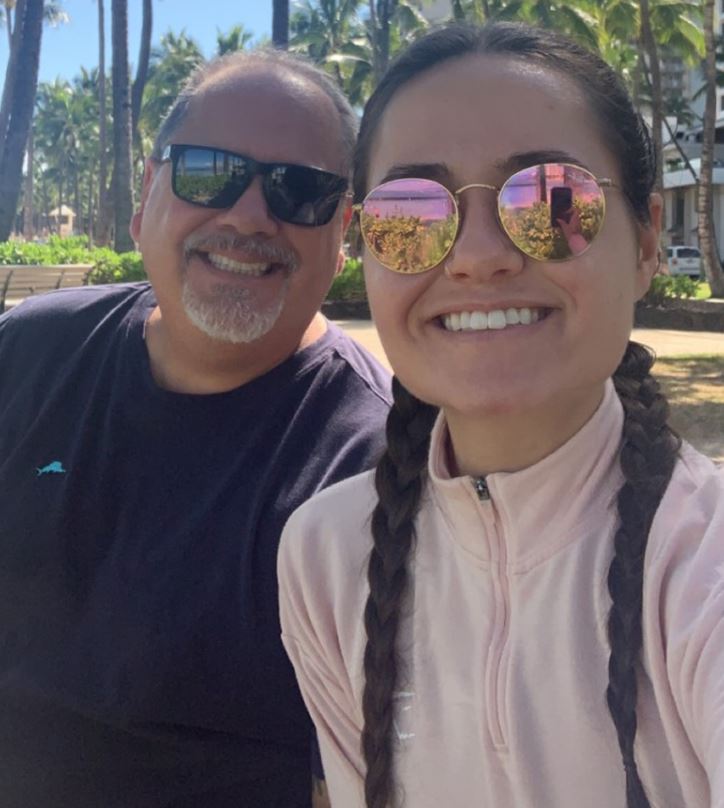
So people don’t always have the correct perception of self, which is why sometimes it’s really nice to work with these assessments with a trusted coach or with a trusted friend, someone who really does know you and can view your assessment and say, I definitely see this alignment, or I think that this might be someone who you want to be compared to where you are now. Let’s work on some goals to get you to this place. I have had some clients be like that.
Yeah.
Which is actually really beautiful and really great because it’s good to strive to be someone who you want to be. And it’s good to share that information with someone to help you get there. But in terms of knowing yourself and finding yourself and creating yourself, it is really important to share that information so that you don’t become almost trapped in your own web.
And by that I mean, if you don’t actually have an accurate assessment, if you don’t explore yourself with honesty and transparency, then you can become further, deeper down on a path that isn’t quite right for you, and then end up at a place a year, six months from now and be like, where am I?
Yeah, I took the wrong turn.
That assessment wasn’t quite right.
Absolutely. This brings me to another question. So your focus, professionally speaking, is on leadership development and cultivation is in that arena. What can people expect to get from working with you? Let’s tackle that part of things here.
Yes. I think one of my favorite parts about working with people is I really highly value diversity on all different spectrums: diversity of thought, mind, culture, experience. And one of the things people can expect when they work with me is to know that I’m not looking to shove anyone into a box. I’m not looking to say you have to be this way or you have to set these goals.
“I think one of my favorite parts about working with people is I really highly value diversity on all different spectrums: diversity of thought, mind, culture, experience.” ~Mary Griffin
I am more looking for what are some things that you want to work on or let’s just have some conversations and we can discover some goals together. If you’re not quite sure where you want to go or what you need to work on, because there are definitely times when people just have blind spots.
Yeah.
They recognize that they have blind spots and they’re just like, “I don’t know what goal that is, but these are some of the problems I’m having and I need help moving forward and navigating in a better way and more positive way.” So when people work with me, they can really just expect that my goal is to build a trusting relationship.
My goal is to help them be who they want to be and get to where they want to be. And I want them to just feel and develop and grow into their most unique individual self and whoever that is, I support them. My only hope is that they trust me and that they put the effort in.
Right?
Because I can’t force someone to change. I can only give them tools.
Exactly. Absolutely. And that’s the key factor, guys, is that oftentimes you hear about the statistics out there, people buying all of these digital courses online, people working with coaches, consultants, mentors, therapists, all kinds of different experts, and then blaming the process because they themselves aren’t motivated enough to actually trust the process and trust the methodology.
So I love that you mentioned that a little bit because at the end of the day, guys, I mean, if you’re not going to discipline yourself to get the work done, then no amount of the best people and experts and courses and processes in the world will ever get you anywhere. It really does come down to you trusting the person and or the service or the knowledge and the action resources that you’re being given and doing the work, just like Mary said. So, Mary, let me ask you this. Who is your client avatar specifically? Who is best suited to work with you?
People who are best suited to work with me are typically people, I know already said this, who want to work on themselves. There are definitely times when I have clients come in and they only want to give the appearance of working on themselves. And I think that they think that I don’t notice. But I notice. I can tell when someone is saying what I want to hear and I can tell when someone isn’t really doing the work. And going back to the assessment, saying another one of my favourite assessments is actually the strength finders assessment. It is an effective assessment. And my top strength based on that assessment is developer. So I feel really rewarded when I get to help someone grow and cultivate the most positive experience for themselves.
So for me, like working with people who actually want to grow and who are open-minded and who have a growth mindset, they understand that they can learn, that they can fail, that they can do anything and everything is going to be okay as long as they’re growing and showing up. And that’s really what I need to feel connected and like I’m helping the world.
Absolutely. As a business consultant, as a certified coach myself, I can absolutely attest to how important that sense of responsibility is to help people actually step into who it is that they want to be, who it is that they’re looking to accomplish. And there’s nothing more satisfying or gratifying than seeing people really make these kinds of momentous leaps forward just by maybe accessing one or two simple methodologies or ideologies. What are your thoughts on that?
I 100 per cent agree. I don’t think there really is anything that’s more rewarding than just seeing how people grow and how happy they feel when they can grow. Because I think sometimes people don’t realize how much they can actually grow and how much power they have over themselves. But you have the ultimate power over your own life and your mind, and you can do anything that you want.
And sometimes you just need the right tools. And sometimes you just need someone to just throw an idea into your brain and plant that seed and let it grow and flourish. And then just seeing how the sun comes out and the light shines through them, there’s really nothing better.
There really isn’t. Honestly, I love this conversation that we’re having. Mary, I want to ask you this because it’s a question that I get asked all the time. So I’m putting it to you as a fellow consultant. There are so many business consultants in the marketplace today, what can you tell everyone watching, listening and reading this about how you differ in your leadership style? And how have you created your niche in the marketplace to support that?
I think that is a really great question, and it’s also a hard question for me to answer. Only because I feel like sometimes by segmenting myself, I’m also stating that I disagree with other people’s methods, which is not true. So I want to say that at the beginning, that I’m not disagreeing with other people’s methods because I think that there are a lot of methods out there that work. But I think that my method really focuses on the individual using compassion and empathy and good communication, high emotional intelligence to work with a human being.
Being open-minded with them, being accepting. You know, sometimes as a coach, you have to hear things that start bordering on emotional and sometimes they just come out. Sometimes it’s just like, “Oh, here’s a story that connects with my goal.” And it kind of like rabbit holes down and having the knowledge and the compassion and the love for just a human experience to recognize and communicate with that. I think that that’s really important, and I don’t know if that’s necessarily lacking in other coaches or consultants, but I have read a lot of studies and a lot of research showing that, like most leaders are not utilizing all of their skills like emotional intelligence or empathy or compassion in the workplace, because those things are viewed as being more feminine leading.
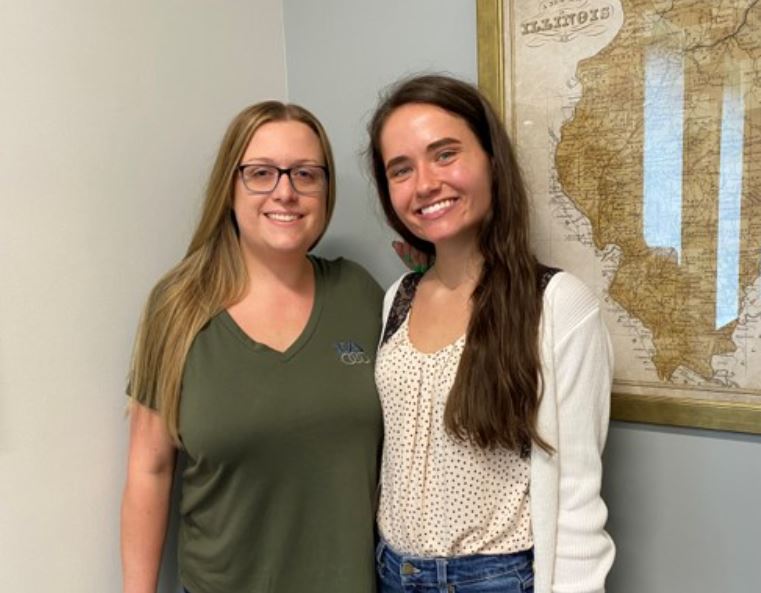
And sometimes in the workplace people can see that. I think we’re really moving away from this idea. These are like studies from like 2010, 2000, but they are things that feed my mind and things that I try to be mindful of. And I think that balance is really, really important. I think that there’s space for all types of energy, for all types of resources. And I think it’s really important for all leaders to understand that being compassionate and being emotionally intelligent and communicating well, actually caring about people and seeing them as people, that’s not a bad thing. That’s actually a really good thing. And it will bring your company so much further than if you treat people poorly or just see them as cogs in the wheel and objects that are disposable. Because that’s not what people are. People are these beautiful experiences that deserve so much more.
“I think it’s really important for all leaders to understand that being compassionate and being emotionally intelligent and communicating well, actually caring about people and seeing them as people, that’s not a bad thing. That’s actually a really good thing. And it will bring your company so much further.” ~Mary Griffin
Absolutely. And for anyone out there wanting to learn more about you and your services, can you maybe top line what some of your services are?
My personal services, mostly border on leadership consulting and culture consulting. So individual one-on-one coaching or culture coaching where I do conflict management, where I coach multiple leaders in one company to help them work better together or even doing team group facilitation. Those are my main areas. And our company does a lot of other things, but those are not areas that I dabble in.
Okay, perfect. So where do we send people if they want to learn more about you or your company and the breadth of services that you offer?
Yes, we have a great website. It is I A Business Advisors and advisors is spelled within s-o-r-s at the end. I know sometimes people spelt with an e-r-s. We’re actually in the process of rebuilding our website that’s going to be launched in September. It’s looking really beautiful. I have the wireframe. You can learn about all of our services on our website. You can also find me on LinkedIn. I know I need to be more active. I’m not really as active as I should be, but you can definitely still find me.
Okay, perfect. As long as people can find you. That’s what matters at the end of the day. So can you just give the website you one more time.
Yes, it’s www.iabusinessadvisors.com.
Brilliant. Okay. So let’s talk about the big idea behind your mission that ties into the book. Before we get into the book, you believe and I quote, “that goals are abstract because they’re rooted in the future while intentions focus on the present.” Can you explain this belief system for everyone?
Yes. Yes. So a lot of studies show, especially around New Year’s resolutions, that people really do love setting goals, which is super beautiful, but sometimes they don’t set smart goals. And by smart, I mean specific, measurable, attainable, realistic and timely goals. They don’t actually break down their goals into ideas that help them reach their goals. And it totally makes sense why people don’t reach their goals, because it’s like if you set this goal and you don’t kind of break it down, it is kind of like this vague idea in your future that you can never reach. And that’s so demoralizing.
You actually have to make steps every day towards reaching that goal, even if it’s just a tiny step. I think sometimes people don’t realize that even a tiny step forward is still a step forward, but you still have to lay that plan out. So intentions by setting daily intentions. For example, if I had a goal and my goal was to bring on three new clients in a quarter, some of the daily intentions I could set for myself is to reach out to one new person every day. I could set an intention of reaching out to previous clients we work with, just checking in on them, using communication. I could set the intention of communicating that goal to my team repeatedly to see if they can dig up anything that they’re talking about with anyone.
So intentions are things that we can do that are smaller. They’re more broken down. We can follow them every day. And you can also do abstract intentions. So I intend to be compassionate today or I intend to have good communication today. Even just small things like that. I know that I’ve had clients who have really been working on their emotional intelligence, so that’s a big goal. Like emotional intelligence is huge. And a daily intention is I intend to be patient today or I intend to track my patience today.
That’s a hard one.
I know. But just breaking big goals down into small things that are manageable and keep you moving forward and empower you and encourage you. That’s really what it’s all about because you can only reach goals and everyone wants to reach goals.
But statistics show that people don’t achieve a lot of their goals. So let me ask you this. Can you share a really simple example that explains how intentions help accomplish goals for those people who don’t quite understand the mindset piece around this?
Yes. So a really easy one is, I’m going to break down communication real quick. So communication involves decoding and coding. Decoding is understanding what someone else is saying to you through their words and micro communications, such as their eyes, their eyebrows, their tone, their body language. And even your subconscious mind processes information like how much are they perspirating? How much are they breathing?
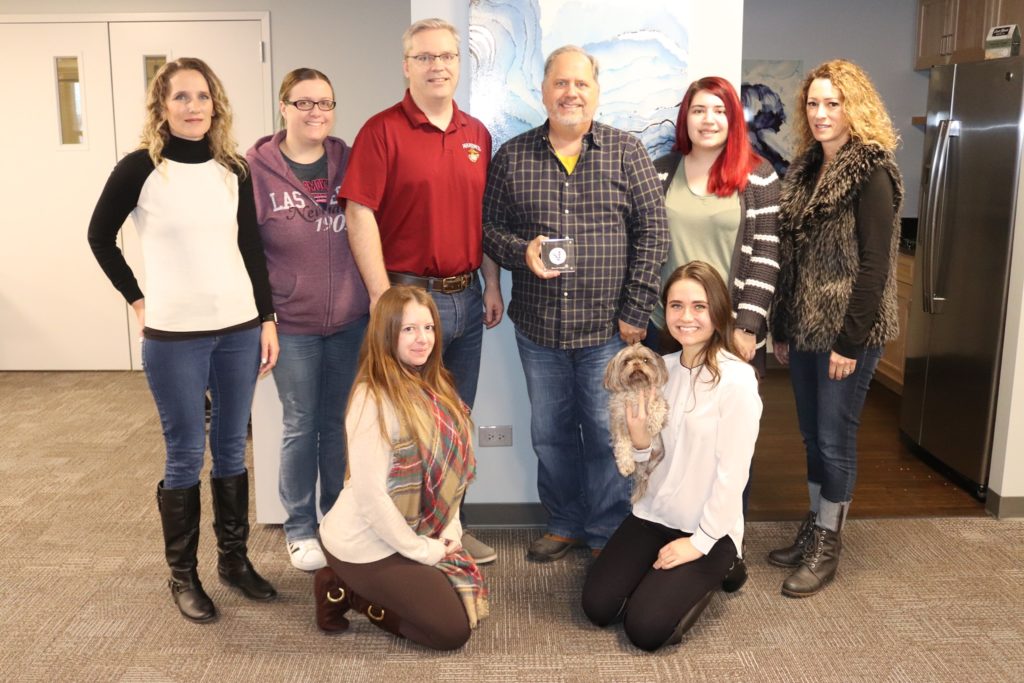
Things that you don’t really recognize, but your brain is like telling you all of these things because your brain is really, really smart. And then coding is how do I do all of those things and put my message out into the world? So if someone has set a goal of I want to be better at encoding my communication so people understand me more, daily intentions could be something like today I intend to have a conversation with my coworker and then I’m going to follow up with them maybe the same day or at the end of the week and ask them their perception of that communication.
So is that the intention?
Yes. Might be. Yes, that’s the intention.
So then what’s the goal of that?
The goal of that is to data gather. The more you gather data and understand where you are in relation to your goal, you’re basically creating a gap analysis for yourself. So I have this conversation with my coworker. I know that I’m working on a big goal, which is decoding communication better or encoding communication better. And at the end of the week I ask my coworker, “Hey, we had this conversation, can you tell me what your perception was of my tone? Can you tell me what your perception was of my body language? How did I come across to you? Did I seem angry? Did I seem happy? Did I seem calm? Do I seem normal?” And then the more information you take in, okay, so my coworker thinks that I was angry and my coworker thinks that my tone sounded confrontational. So now I know that when I speak that way or when I look that way and do certain things, that is how I’m coming off. And then you repeat that every week to build a database in your mind to understand how others perceive you. And that’s not really about being how others want. It’s about your own goal. I want others to perceive me as calm. I want others to perceive me as happy. But I just need to work on controlling my tone or hearing my own tone.
Another good intention you could set if you were really working on tone is recording yourself. Get in a zoom chat with yourself and just record yourself and talk and listen back. Sometimes it’s weird to listen back to yourself, but it can be really helpful too, because you can just pick up on things that you’re not going to hear when you hear yourself speaking.
Absolutely. You know, what I’m picking up from what you’re sharing here is part of this relationship or this journey from intention to goal, accomplishment has to do with setting something that is measurable. Because without the measuring of it, you don’t actually know if you have accomplished the goal.
And I feel that is a key aspect that a lot of people do miss out on, at least from my experience working with clients is that, you know, this is what I want, this is what my intention is for accomplishing this goal. And this is the goal that I want to accomplish by said time.
Mm hmm.
And that’s it. And there’s no gauging of the success rate, the journey of how to get there. Is there a better way? Is there a way that’s more impactful? Are there different journeys that will help me accomplish other things along the way like this? It can get really complicated, this journey between intention and accomplishing goals.
So I get a feeling that a part of that comes back to the beginning of our conversation where you also talked about understanding self. I feel that ties in quite beautifully with being able to set intentions that actually do have measurable goals. So let me ask you this now, because I feel like this is the perfect segue for us to get into the book. So let’s do that right now.
The book, guys, is called, as I said off the top ‘Individual Influence: Find the I in team.’ So the I we’re talking about is the I, the self. So this is a collaboration with your father, Mary. Tell us about what led to this coauthoring initiative. Let’s start there.
Yes, that’s a great place to start. So in 2017-18-ish, I had been working for IEA for about three or four years then, and he approached me and asked if I wanted to help him with writing this book about his philosophy on coaching. I learned a lot of my philosophy on coaching from him.
Your father Is very established and he’s been doing it a long time. I think he knows a thing or two.
Yeah. Oh yeah. He definitely he knows a lot of things.
Yes.
And I have a bachelor’s in English literature, definitely not the best editor, but I feel like I’m a pretty good writer and I feel like I can understand a lot of the things he’s saying and help put them in a way that other people are also going to understand.
And that’s really important.
Yes. Because if you’re going to share a message you have to make it so more people can understand and relate to it, resonate with it, right? So that’s really where it all started. We just started talking about his philosophy on coaching, his ideas. He journals every single day, has for so many years. He literally has so many of these little school notebooks that he just writes in every single day.
I combed through a ton of them and pulled out all these different ideas. We threw them together, put them into chapters, and that was our first edition. This release is actually our second edition. So I’ve done a heavy lot of editing. We’ve put in key takeaways at the end of each section, so that if someone really likes that chapter, but doesn’t really want to reread it again because not everybody always likes rereading, you can just kind of go to the key takeaway and see the bullet points of this and move forward. And then we also added a whole new chapter on bias. So that was really great.
So let me ask you this, Mary. Tell us about finding the I that the book’s title talks about. What do people need to know?
Yes. So finding the I is all about self exploration, self reflection. And that’s really what the first book is about in our philosophy. We believe that the word individual has a dual meaning. It’s both me as a singular individual, and it’s also us. We are together creating an entity that is an individual. So on the second and third books in the future, they focus more on how you individually relate to your individual team. But the first book is really all about the self. It’s really all about understanding your influence.
“We believe that the word individual has a dual meaning. It’s both me as a singular individual, and it’s also us. We are together creating an entity that is an individual.” ~Mary Griffin
The I is your influence, it’s individual and influence, and it really just like helps the person explore different areas of self doing self reflection, slowing down, being honest with yourself, understanding your communication. The biggest thing that we try to hammer into the reader at the beginning is just, this is not going to work if you don’t want to be honest. And sometimes being honest is really scary.
And in one of the chapters we even put this section if you are doing self-reflection and you have memories come up, which can happen to a lot of people, that are painful or traumatic or they don’t make you feel very good. Talk to someone. Don’t just like hold that in. And write in a journal, get that out, understand it and realize that you are in the present and that you can move forward and you can have healthy emotions and analyze something healthfully. But if you need help, there is no shame in getting help.
There’s no shame in seeing a therapist and talking to a friend, even if you aren’t comfortable doing those things. Writing in your journal. The most important thing you have in life is your self. And sometimes that sounds selfish, but it’s really not because everyone is so important and everyone is so unique. As an individual, you have so much to offer the world and yourself and you’re doing a disservice in this life if you don’t explore yourself fully and offer your unique influence in your own way to those around you.
“The most important thing you have in life is your self. And sometimes that sounds selfish, but it’s really not because everyone is so important and everyone is so unique. As an individual, you have so much to offer the world and yourself and you’re doing a disservice in this life if you don’t explore yourself fully and offer your unique influence in your own way to those around you.” ~Mary Griffin
Oh, my God. I absolutely agree with you. It’s what movies are made of. It’s what literature is made of. It’s what professional development is made of. It’s what relationship building is made of. It’s that core idea of knowing you. So let me ask you this. This current book that we’re talking about, the second edition. Can you break down the journey that the book takes people on?
Yes. So the journey really starts with building the philosophy, helping the reader understand some of the terms that they’re going to hear, where the philosophy came from, why it was developed. And that’s kind of the first chapter. And it’s definitely shorter than the other chapters because it’s just, here’s some information you need to know so that you can follow along and understand the rest.
I love that you have that. I love that you have a guide, so to speak, so that people can make the most out of their journeying through the book. That’s great.
Yes. Laying a foundation is so important because sometimes if you just throw someone into an ocean without a life raft or without understanding how to swim, what’s going to happen to them?
They’re going to drown.
So giving the person a life raft, teaching them how to swim, this is our philosophy. These are the terms you’re going to hear. And then they enter one of the largest chapters of the book, which is just slow down. And that’s so hard sometimes in our fast paced world. But you have to slow down and calm your mind and just chill all the thoughts you have running around. And that’s not to say that you can’t be fast pace, that you can’t be fast moving.
But there are definitely times when solitude is really important, when just relaxing and taking time for yourself is really important. So the slowing down chapter really focuses on teaching someone what it means to go slower and how they can do that. So giving them the tools to understand. The third chapter really goes into how you use the product of slowing down to focus and what it means to focus and why focusing is important.
So slowing down and focusing are the two big parts in there at the beginning for a reason. Because if you don’t slow down and if you don’t focus especially inward, you’re not going to do that much self-reflection and self-exploration. Or you might. And it’s going to be hard to understand or have pieced together. I definitely have had times in my life when I’ve tried to not slow down and focus and do self exploration, and it just gets really confusing. And then we move into understanding your foundation. So start exploring where you came from. How did you grow up? What was the environment around you? What are some of the experiences you’ve had? How do you learn? How do you enjoy educating yourself? How do you enjoy experiencing life? What are your hobbies like? What is the core part of you that you feel makes you you?
And then we start going into communication. So we teach people to understand how you communicate. Understand how others see you. Understand how you see yourself. To start thinking about how you talk to yourself in your mind. Communication isn’t always outward communications. It’s also inward.
You have a lot of voices in your mind. Sometimes they’re not yours. Sometimes they’re planted from other people. And sometimes those voices can be mean. We don’t need those. If it’s not serving you, making you feel good upward, then get rid of them. Only have positive thoughts about yourself because you’re beautiful in your own way and you shouldn’t compare yourself and judge yourself against others.
We talk about bias. So we attempt, and I think do pretty well, to dissect the difference between subconscious and unconscious bias. So a lot of the times we really only hear about unconscious bias. But I think that there are definitely times in life when people are biased and they might not immediately know where it comes from. But upon self-exploration, you can say, “Actually, I have this memory and this is where my bias comes from.” That’s more subconscious.
Unconscious is like so deeply rooted. You would never be able to find out the reason why unless you have hypnotherapy or regular therapy or just something to really dig what you can’t dig on your own. But sometimes with self-exploration you can root where your bias comes from based on a memory or an idea or something someone said to you once, or just an experience you’ve had. You can go, “Oh, that is something I should probably work on.”
Absolutely.
And then the last chapter just starts leading them into the rest of the philosophy, which is why it is important to understand yourself so that you can be your best self for your team and others and what that means to you and what that means to others.
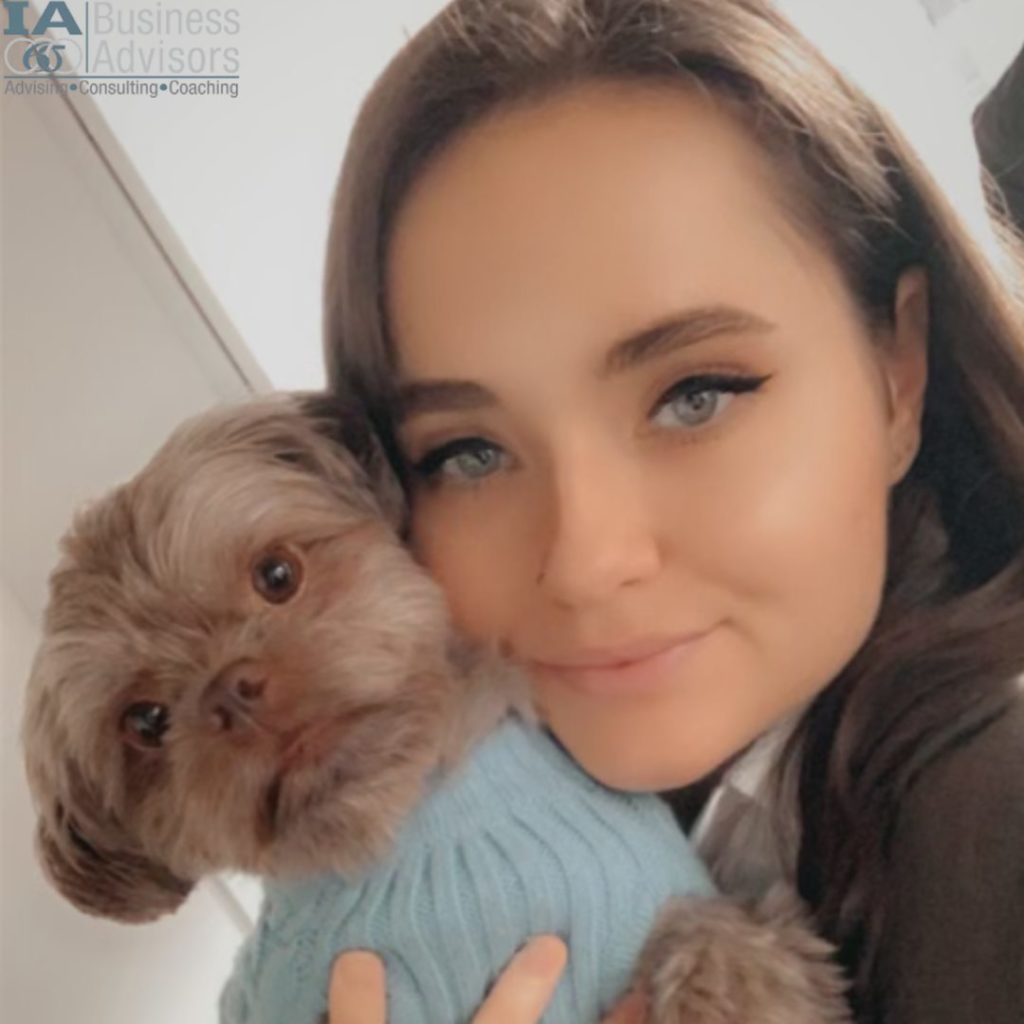
Oh, my gosh. This sounds like a very intentional journey, one that every single one of us must go on. This is like a ground zero for everyone to understand who they are, and that will then allow them to empower their environment and the people they work with and come back full circle and do it all over again.
I feel like the book can be used and utilized at different phases of your journey and you can do the exercise of this journey that you just took us through multiple times throughout your life. I mean, let me ask you this, Mary, who is the book designed for? Is there a specific person that you have in mind that this book was written for?
Yes, I actually have two specific people in mind. Okay. I think this book is really great for newly entering college students or newly emerging adults who are trying to understand themselves. Our world really expects you to turn 18, know what you want to do with your life, know what you’re going to be. Know who you are. Who knows who they are when they’re 18?
No one.
But that’s really what our world expects. It’s okay, you’re 18. Now get out there and be. Be who you are, be yourself. And that’s really hard. So the book is for someone who’s kind of in that phase. I’m emerging from high school or I’m entering the workforce or I’m starting something new, but I don’t quite know who I am yet. I need to explore myself. And then the second group that I really see it helping with is our leaders who want to build high performing teams/team members who want to be part of building high performing teams.
And I kind of make that slash, but I personally believe that even if you’re not an appointed leader, even if you’re not like a C-suite employee, even if you’re not a manager, you can still be a leader. You can still help people understand how to act, how to communicate, how to interact with others just by leading, by example. So when I say leaders, I mean anyone.
Yeah, but anyone in a position of responsibility. Down the food chain. So it could also be very helpful if you’re a mom or a parent, right? I mean what is greater leadership requirements in terms of the massive responsibility of that role? Right?
100 per cent. I really agree with that so much because you are literally creating and cultivating a mind from scratch. You have to understand your influence on building an entire existence that enters the world.
Oh, my God. So, moms and dads out there don’t just think about this from a professional perspective. I mean, what is a more fulfilling role in life than parenthood and that nurturing relationship that’s lifelong that we also as adults learn from we learn so much from the relationship that we have with our children.
So I think that this book is really multi-perspective in terms of how you can really incorporate it into knowing self. There’s so many aspects to knowing self and how it can benefit your self and the environment around you. Let me ask you this. What do you hope people get out of this book? Like, what is the big value proposition that you hope people will be able to get?
I think the biggest thing that I want people to receive when they read the book is confidence and calm and stillness and knowing that they’re important. There are almost 8 billion people in the world. But don’t let that number make you feel like you’re not important. Don’t let your current place in life make you feel like you’re not important. You are so important to our ecosystem. You have so much value to give, and sometimes it might not feel that way.
You know, we have a lot of mental health problems in our world and we have a lot of poverty and a lot of issues. But just because these are hard things that are happening, they are also truth of the world. And you have the power to control your influence. And the only way that you can do that is by knowing yourself. And the most holy thing you can do is to explore yourself fully. You deserve it. You’re beautiful. You’re amazing in your own way. Understand that as well as who you are.
“You have the power to control your influence. And the only way that you can do that is by knowing yourself. And the most holy thing you can do is to explore yourself fully. You deserve it. You’re beautiful. You’re amazing in your own way. Understand that as well as who you are.” ~Mary Griffin
There is someone who is the exact opposite of you because you cannot have anything that exists in life without the opposing force. Like light does not exist without dark. You have two sides of the coin. That’s okay. And that’s what makes life beautiful. That’s what makes diversity beautiful. So understand that you can be yourself and that is what makes you beautiful. Don’t let anyone tell you that who you are is not okay.
Oh, that’s a powerful one right there, because you are okay and you are enough and you are all those things that we talk about today in pop culture. Where can people grab a copy of the book? Is it available everywhere?
It is kind of available everywhere. We have an app for mobile. We don’t have softcover. We do have audio book, e-book and hard cover.
Okay. All right. And all booksellers online as well as physical stores, I’m assuming, would have copies of it?
We are working on getting in physical stores. The book just released on Tuesday.
Oh, my God. We got you hot off the press, didn’t we?
Yes. We’re kind of making moves to get in the bookstores. But we are on Amazon. We’re on Barnes and Noble. The audiobook is free with Audible. I know that sometimes you get credit, so if you were interested in listening, some people are auditory learners. It’s just a better way. Whatever is your best method of learning and digesting information, it is available to you.
That is brilliant. So for anyone still out there who after this whole conversation that we’ve had, isn’t quite clear on cultivating the I and how it can benefit business, personal life, spiritual life, can you shed light on that piece specifically in as simple as terms as you possibly can?
The simplest terms of why it’s so important to find your influence is because you deserve it. You just do. You deserve to explore your self, to know your self, to find yourself. To create in this body and in this life. You just do. You deserve this.
You know what and there’s nothing more powerful than that. Right? Any final words that you’d like to leave everyone with, Mary, on today’s show theme, which again is how intention setting is the key to accomplishing goals with big impact?
I think my last parting words are just I hope that you know how important you are. I hope that you know that you can do anything you set your mind to. You have the most powerful computer sitting right between your ears. And some days it might work better. Some days it might not. And that’s okay. And that’s part of the human experience. Just enjoy the ride, set those goals, keep moving forward, keep a growth mindset, stay open minded and love yourself. Show yourself compassion because you really do deserve it.
Absolutely, Mary. Where can people hang out with you on social media? You mentioned LinkedIn. Are you on any of the other stuff?
I am not. Mostly on LinkedIn.
Are you a millennial?
I am.
How are you not? I love this.
I used to have all the social platforms. I used to have Instagram, Twitter, Facebook. But about six years ago, I just felt this immense toxic energy from it. And I don’t think that it’s always that toxic. I just think for each person it’s different. But yeah, I couldn’t have that in my sphere.
I love that. What a lovely answer. I mean these are wonderful things to hear, especially from the generation that created this entire world of social media and created it, meaning all the other biggest users of it. It’s incredible to hear that sometimes shutting off from things that really are none of your business is a good idea.
And also to shut people out of your business when you don’t want them to be a part of it. So I love that. I have loved our conversation Mary. Thank you so much for bringing your wealth of wisdom and insights to this show for our community to really benefit from. Thank you so much.
Yes. Thank you so much for having me. It’s been amazing.
Oh, I’m so happy. Guys, if you haven’t already tapped into the importance of your self leadership, I really want you to think about the importance of grabbing a copy of Mary’s book, ‘Individual Influence: Find The I in Team’ and drop her a message to see how you can benefit from working with her if you feel that some of these concepts or things that you want to be able to tap into, or you also want to maybe take it to the next level for whatever the reason is that you feel it’s important to you. And guys, I really hope that you got some real value from today’s show.
As I always say to you here at the end, I really hope that you will share it with everyone you know who you feel needs to get today’s learnings. I also hope that you’ll subscribe to my YouTube channel and hit the notification button at The Open Chest Confidence Academy so that you never miss an episode when it drops every Wednesday.
You can also download the ‘Transform Your Confidence Show’ on podcast platforms. And guys, if you feel that it’s a valuable resource to assist in your journey, to empowering your confidence with actionable insights, give it a five star rating. I would be so humbly appreciative of that.
You can also consume the podcast as a blog. I say this every single week as well. Just head on over to theopenchestconfidenceacademy.com/media/podcast and I’ll see you next week for another invaluable episode packed with insights and learnings to help empower your work, your life and your spirit.
Take care of yourselves, my darlings.



